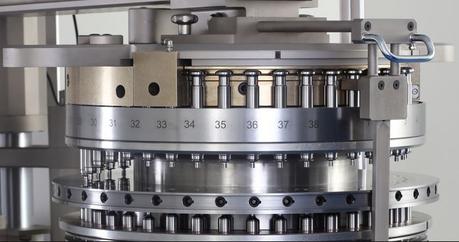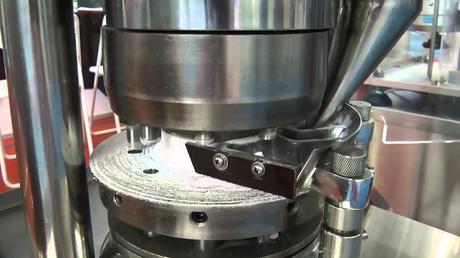Tablet presses are essential machinery used in the pharmaceutical industry to produce tablets from pill binder ingredients. They come in various sizes, shapes, and configurations and must be properly cared for to continue running smoothly and producing high-quality tablets. With proper maintenance, your tablet press will last longer and ensure production efficiency. Here are some tips on how to take care of your tablet press.
1. Clean Regularly
One of the most important steps for maintaining your tablet press is regular cleaning. All parts should be cleaned thoroughly with an appropriate cleaner before use. This will help reduce the build-up of dust and dirt, which can cause problems such as jamming or sticking during operation. Additionally, wiping down the exterior surfaces of the press can help keep it looking good while also preventing dust accumulation on sensitive components inside the machine.

2. Monitor Wear Parts
Wear parts such as plungers, die sets, feed trays, ejectors, and other moving components should be inspected regularly for wear or damage. Suppose these parts become worn out too quickly due to excessive use or improper maintenance. In that case, they may need to be replaced for your tablet press to continue operating efficiently and safely.
3. Maintain Calibration Settings
The settings on a tablet press must remain consistent for it to work properly; if any of these settings are changed incorrectly, it could lead to inconsistencies in outputted pills or even complete shutdowns of the machine due to safety issues. Therefore it’s important that you regularly check calibration settings like compression force (pressure) levels against manufacturer guidelines so that they aren’t inadvertently altered by operator error or mechanical failure over time.
4. Lubricate components properly
The various moving parts inside a tablet press require proper lubrication to minimise friction between them and to protect them from corrosion over time due to their exposure to moisture when working with pill-binding ingredients. Ensure that all new lubricants meet OEM requirements before applying them to any surface; old lubricants should also be disposed of properly, rather than poured down drains or left lying around where contaminants may mix with them. In addition, ensure that all lubrication points are checked frequently, especially after long periods of inactivity, so that no part becomes too dry and causes unexpected equipment failure.
5. Check air pressure levels regularly
Correct air pressure levels are important when setting up a tablet press. Too low a pressure will weaken the compression forces, resulting in poor quality products, while too high a pressure could overload the motors, resulting in unwanted shutdowns in the middle of the process cycle. It is therefore recommended that air pressures are checked at least once a month against the manufacturer’s specifications using a suitable pressure gauge; this will help to avoid long term cost savings by avoiding damage caused by incorrect set up parameters.
6. carry out preventive maintenance checks
As with any other piece of industrial equipment, although a tablet press may appear to be in good condition on the surface, it is essential to carry out regular preventive maintenance checks to keep it running optimally without sudden stoppages due to system malfunctions; this includes checking all electrical connections, inspecting belts and pulleys for signs of wear and tear, testing pneumatic lines, etc. These checks will prevent minor repairs from becoming major ones, as early detection will give technicians time to rectify any underlying problems before they become catastrophic!
7. store properly when not in use
Although many people don’t think about storing equipment such as bench presses properly, doing so will not only help to prolong their life, but will also protect workers from potential hazards when they use them later after long periods of non-use! 8. keep spare parts in stock Although preventive maintenance and regular cleaning will go a long way towards preventing breakdowns, having spare parts on hand will ensure that production cycles are minimised in the event of unexpected stoppages!

8. Keep spares in stock
Although preventative maintenance and regular cleaning go a long way to avoiding breakdowns, having spare parts on hand will ensure minimal loss of production cycles when unexpected stoppages occur! Keep spare parts, such as dies, punches, feeders etc., on hand, along with the necessary tools, as emergency replacements may be required depending on the severity of the problem at hand; knowing what type model equipment you have makes it easier to quickly narrow down the list of compatible replacement options, saving valuable time in resolving the problem!
Overall, proper care and regular inspection will go a long way to extending the life of equipment such as tablet presses, while reducing operating costs associated with lost production cycles due to avoidable malfunctions and unforeseen accidents! Following these simple tips will help ensure smooth, reliable operation for years to come!
The post How To Care for Your Tablet Press – Tips to Ensure Smooth Operation and Quality Production first appeared on Genealogy Religion.
